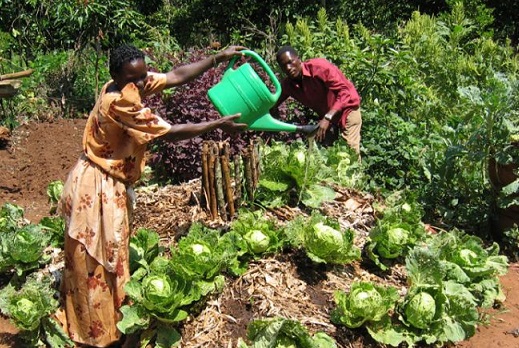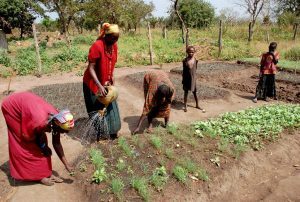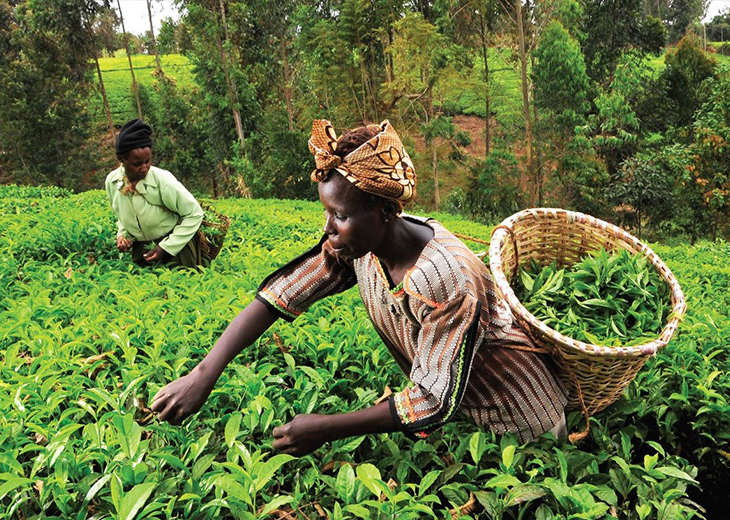INTRODUCTION
Food Rights Alliance (FRA) a coalition of over 30 members spread out in all regions of Uganda is implementing an 18 months project Funded by the Democratic Governance Facility (DGF). The project seeks to promote inclusive, equitable land governance in Uganda that fosters optimum land use and upholds people’s land rights”. Under this project, FRA hired an external consultant to develop community participation guideline and a toolkit to aid communities to meaningfully participate, contribute to and enjoy benefits from National development initiatives, especially within the natural resource sector.
Background to the Development of the Toolkit
80% of Uganda’s land is held under customary tenure system by people mainly living in rural areas with less than 30% of the total land is registered1. The National Development Plan (NDPII) recognizes the fundamental nature of transparent rights of land ownership and improved tenure for all categories of land ownership; and highlights the need to sustain easy access to land for productive investments. The NDP further notes that the current tenure systems present constraints to acquiring land for public infrastructure, urban development and large-scale land-based investments. On its part, the Land Sector Strategic Plan highlights the need to put land and its resources to optimal use to achieve prosperity and industrialization. Government is committed to addressing the multiple social, cultural, economic, ecological and political functions of land; and is further committed to ensuring that land transactions reflect equity and justice. It also highlights the need for strong institutions and procedures for resolving land conflicts and disputes. The National Land policy, 2013 reaffirms these commitments and seeks to ensure “efficient, equitable and optimal utilization and management” of Uganda’s land.
On top of an elaborate legal framework for land administration, Uganda also has committed to the FAO Voluntary guidelines on the Responsible Governance of Tenure of Land, Fisheries and Forests (VGGTs) and the AU framework on large scale land-based investments. The guidelines in principle spell out the obligations of the state and responsibility of non-state actors including business entrepreneurs. As a matter of principle in implementation, the guidelines uphold human dignity, non-discrimination, equity and justice, gender equality, consultation and participation, transparency among others. The guidelines commit states to take reasonable measures to identify record and respect legitimate tenure rights holders so as to refrain from infringing tenure rights for others. The guidelines further call on government to protect tenure rights holders against the arbitrary laws of their rights including forced evictions. In addition, government is further guided to provide effective and accessible means of justice and ensure that there is prompt, just and fair compensation where tenure rights are taken for public purposes and endeavor to prevent corruption of all forms at all levels in land management and governance.
Whereas the guidelines propose strengthening capacities and operations of implementing agencies, including organizations of farmers, small producers and communities to promote cooperation and participation, the policy and legal frameworks do not create such structures for engagement on land and neither are there guidelines to facilitate this form of cooperation and community participation. Decisions concerning land management, acquisitions, and governance have continued to be made without effective public participation. Hence the urgent need to develop guidelines for a structured community participation and engagement.
Objectives of the Assignment
In order to ensure informed advocacy to enhance understanding of the community on FPIC, FRA would like to engage a consultant to produce a high-quality translated version of the toolkit in two languages of: Luganda and Ateso.
Methodology
The consultant will work in close consultation with FRA. The consultant will be expected to conduct a thorough review of the toolkit and ensure that every word translated makes a meaning to the document.
Specific Deliverables include:
A high-quality translated toolkit clearly highlighting the information that exist in the original or English version of the toolkit.
Profile/Skills and Qualifications Required:
The assignment will be undertaken by a qualified and experienced consultant or consulting firm. The consultant profile should include:
- Demonstrable experience in reviewing and translating documents.
- Holder of a minimum of a Degree in communications or related field:
- Fluent in written and spoken English, Luganda and Ateso
Work Plan and Schedule
The assignment will be undertaken for 15 days with the consultant being available to explain and clarify on issues when called upon.
- Deliverables and Reporting Requirements (Outputs)
The consultant is expected to deliver the following:
- A draft copy of the translated toolkit after one week- upon which FRA will make input.
- Final copy of the toolkit.
- The consultant will report to the Executive Director of FRA and will continuously coordinate with the project staff for all contractual matters.
- Proposal Details from Consultants, Fees and Cost Estimates
Consultants are invited to submit a technical proposal (not more than 3 pages) outlining the approach to be used in carrying out the assignment and provide a quotation of professional fees (as well as reimbursable costs) for the entire assignment. The proposal should include the following:
- Profile or details of the firm or individual(s) including experience relevant to this assignment.
- A detailed work plan and the proposed methodology, which shall include full justification for procedures to be adopted; Financial proposal (professional fees and reimbursable);
Application process Interested consultants (individuals and firms) with experience in executing similar assignments are invited to submit their expression of interest / bids by close of business on 28th, May 2020 with the subject field “Expression of Interest for Provision of Translation Services” addressed to; Executive Director
Email: fra@fra.ug and copied to forochi@fra.ug , acayo@fra.ug
and jssebuliba@fra.ug
Statement of Safeguarding
According to Food Rights Alliance organizational value of accountability, it is our policy to safeguard all individuals involved in Food Rights Alliance work against risks of exploitation and abuse. Food Rights Alliance will not tolerate exploitative or abusive behaviors by anyone associated with the implementation of Food Rights Alliance work.
DOWNLOAD PDF





